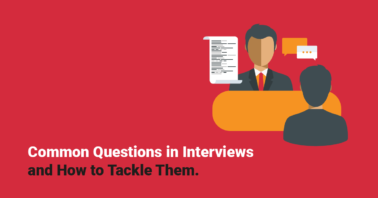Imagine; you have qualified for a job in your dream company and you beat all other candidates. On the day you report to work, you are so eager to start work right away. But when you meet your manager, they inform you that they do not have a job description for your role but they want you to show up every day and get paid at the end of the month. What would you end up doing in this moment and in the long run? I know this cannot go down well quietly. I picture this dialogue between the winning candidate and their manager:
“What do you mean by ‘We don’t have a job description for you’?”
“We simply don’t have one. What is not clear about that?”
“Everything! What did you expect the person you were interviewing to do after they got the job? Don’t you have anything like a contract?”
“Oh! I had forgotten that part. We do.” The manager pulls out a paper from the drawer and hands you a two-year contract for signing. But the contract still doesn’t outline any responsibility. The salary is good. Everything on the contract is fine but for one clause at the end which says, “The organization retains the right to terminate the contract anytime.”
What would you end up doing at this moment and in the long run? Would you storm out of the organization in protest, or would you stay around, do nothing and earn free money?
Well it sounds ridiculous that an organization can think about conducting interviews for a role for which they don’t have responsibilities for? Many organizations will advertise a job with a list of responsibilities the applicant will expect. It is the norm and that is why many job seekers wait until organizations figure out what they want and advertise it.
The mere fact that job seekers give organizations space to advertise jobs is in itself an indication that there are not so many people storming organizations to offer solutions. The needs of organizations are insatiable. Their needs are ever changing. The constant advancements in technology, globalization, communication channels, social lives of people, education and many other social and occupational lifestyles have kept organization on their toes. When I began working in 2007, social media was not so popular. When it became popular, it was regarded as a platform for idlers. Today every organization is striving to have a presence on social media platforms. Who knew about this change 10 years ago?
If you want to be relevant in today’s world, don’t live in the past. Don’t be stuck on how you used to do things before. In fact don’t even live in the present. The present is already congested and many people are already competing in it. Live in the future. Anticipate the needs of organizations in the future and solve them before they reach there. It is our cardinal duty as schooled professionals. We are educated to ease the pain that organizations go through. Organizations are not certain how they will be working 10 years from now. Trust me; in 10 years from now, there will be a significant difference from how work is being done today. That means their needs will also have shifted. This future is not so clear for so many organizations. But it has to be clear for us as professionals.
If you went around visiting organizations trying to find out what they really need, and how you can be helpful, they will inform you that they are fully staffed. But what if you visited the same organizations telling them you have a solution that can speed up their work, how many would be willing to listen? Or how many will tell you they are fully staffed?
Steve Jobs, CEO of Apple Inc. and one of the greatest inventors the world will not easily erase from its history had this to say about finding out what your client’s next need is: “Some people say, ‘Give customers what they want.’ But that is not my approach. Our job is to figure out what they’re to want before they do. I think Henry Ford once said, “If I’d asked customers what they wanted, they would have told me, ‘A faster horse!’ People don’t know what they want until you show it to them. That’s why I never rely on market research. Our task is to read things that are not yet on the page.”
No one knows what they will need tomorrow. But if someone establishes themselves as a person who figures out our needs before we are aware of them, they establish themselves as leaders. You don’t need a job with a list of responsibilities to be relevant. All you need is a solution that solves a challenge in an organization.
TASK: Today, go to Google and search Organizational challenges in the 21st century. Pick out one challenge that you either have a passion for or one that falls within your academic area of expertise. Ask friends who are employed about how that challenge manifests in their organizations and how it is being addressed. If you have a different opinion on how to solve it, there you are. You have just landed yourself a job. Draft your solution and walk to these organizations and either ask for a job or opportunity to train concerned departments. If in your opinion, the challenge you chose is already solved, find another one. All the best!





